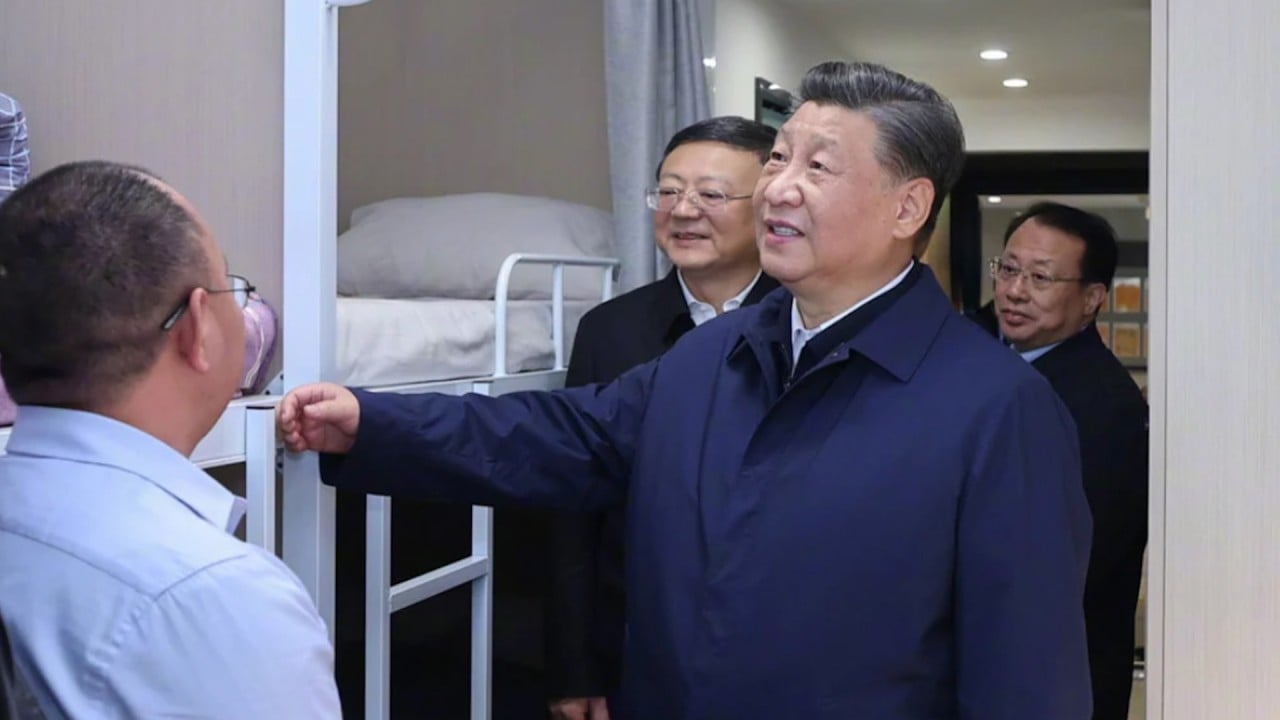The commission also had strong words for the consequences it found that theory has wrought. “Under the capitalist ideology and social system, finance capital reveals its monopolistic, predatory and vulnerable nature,” it said. “It not only creates a huge gap between rich and poor, but also triggers recurring economic and financial crises.”
“It is to be understood that the operations of Chinese financial institutions, under the guidance of the [Communist Party], are driven by a different imperative compared to their Western counterparts,” said Wang Zichen and Jia Yuxuan, researchers with the Beijing-based Centre for China and Globalisation think tank.
In the Western context, profitability, maximising returns for shareholders and adhering to regulatory requirements is the primary objective of financial institutions, they said in a note last month. In contrast, they added, Chinese institutions hold as their prime directive the faithful execution of tasks assigned by the party.
The added value of China’s financial industry accounted for 8 per cent of the national gross domestic product last year, higher than the 4.9 per cent average for Organisation for Economic Cooperation and Development member countries and approaching the level of the US and the United Kingdom, according to minutes distributed by the National People’s Congress.
Some of the country’s state-owned banks, such as the Industrial and Commercial Bank of China, have entered the world’s top 10 in terms of revenue. Five are included in the list of global systemically important banks as designated by the Bank for International Settlements.
When discussing financial problems in late October, lawmakers said the domestic industry’s competitiveness needs to improve and its support for the real economy – those sectors which produce or trade in goods and services – is inadequate, particularly when it comes to private firms.
What medicine does China’s economy need as property hangover haunts outlook?
What medicine does China’s economy need as property hangover haunts outlook?
In the Qiushi article, the top party finance organ made clear that domestic financial institutions must maintain a correct perspective on business, performance and risk.
“We must strike a fine balance between functionality and profitability,” it said, “but bear in mind that functionality always comes first.”
Financial inclusiveness, or letting the people share in the fruits of China’s finance, is a distinctive characteristic of the country’s system compared to those in the West, it added.
With security remaining a major area of focus given lingering tensions with Washington, Beijing’s state-backed garrison of financial players should better serve the real economy, buttress “weak links” and support strategic projects such as the Belt and Road Initiative and yuan internationalisation, the commission said.
In a Monday article from People’s Daily, the party’s official newspaper, central bank governor Pan Gongsheng said the party’s centralised and unified leadership over financial affairs is essential to solving institutional problems in finance.
Pan admitted neither the quality nor efficiency of financial services provided to the real economy are high, adding some enterprises manage a large share of financial resources inefficiently.
“Financial chaos and corruption persist, financial supervision and governance capabilities are weak, and there are still many hidden economic and financial risks,” he said.
“We must continuously enhance the party’s leadership of finance, so that such political and institutional advantages can be effectively transformed into a boost to financial governance.”


